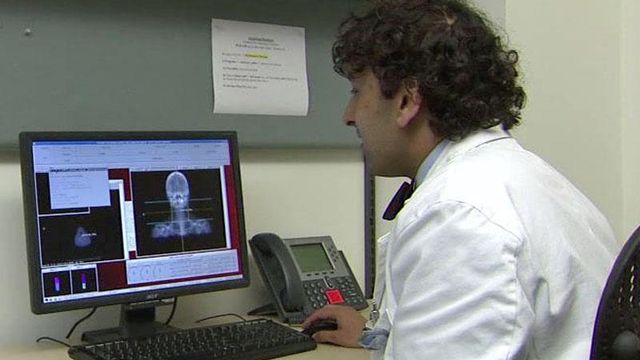Oral cancer on the rise in young women
Research shows that cases of oral cancer are on the rise for young women, even among those without the risk factors of tobacco and alcohol use, according to a study by a University of North Carolina at Chapel Hill oncologist.
Posted — UpdatedYour browser doesn't support HTML5 video.
Research shows that cases of oral cancer are on the rise for young women, even among those without the risk factors of tobacco and alcohol use, according to a study by a University of North Carolina at Chapel Hill oncologist.
Ashley Scott, 28, of Raleigh, doesn't smoke or abuse alcohol. She is a young, urban professional who leads a healthy lifestyle.
A year ago, oral cancer was the last thing on her mind.
"It was caught because I had a real angry ulcer on my tongue," Scott said. "My surgeon, she said, even if you had smoked two packs a day your entire life, this still should not be happening to you."
Scott had part of the side of her tongue and some lymph nodes removed, followed by radiation and chemotherapy. She is in remission, but has to undergo physical therapy to get sensation back in her mouth and neck.
Research suggests she's not alone.
Dr. Bhisham Chera, a radiation oncologist at UNC, has been studying the growing trend of young women with oral cancer. He said he first noticed it in his own practice, but his observation was confirmed when he reviewed incidence rates in the U.S. from 1975 to 2007.
Your browser doesn't support HTML5 video.
"As we expected, the number of cases of oral cavity cancer was decreasing," Chera said, but the incidence of squamous cell cancer on the tongue was up among young, white females and had increased rapidly over the past decade.
Incidence of oral cavity cancer is still quite low, Chera said; there were just 92 cases among young white women from 2001 to 2007.
Tobacco and alcohol use have traditionally been the leading risk factors for cancer in the oral cavity, though this does not hold true in Chera's study.
Early detection is important. Doctors recommend seeing a dentist or personal physician regularly and getting checked out by an ear, nose and throat specialist as soon as possible if a mouth sore isn't healing.
Copyright 2024 by Capitol Broadcasting Company. All rights reserved. This material may not be published, broadcast, rewritten or redistributed.
